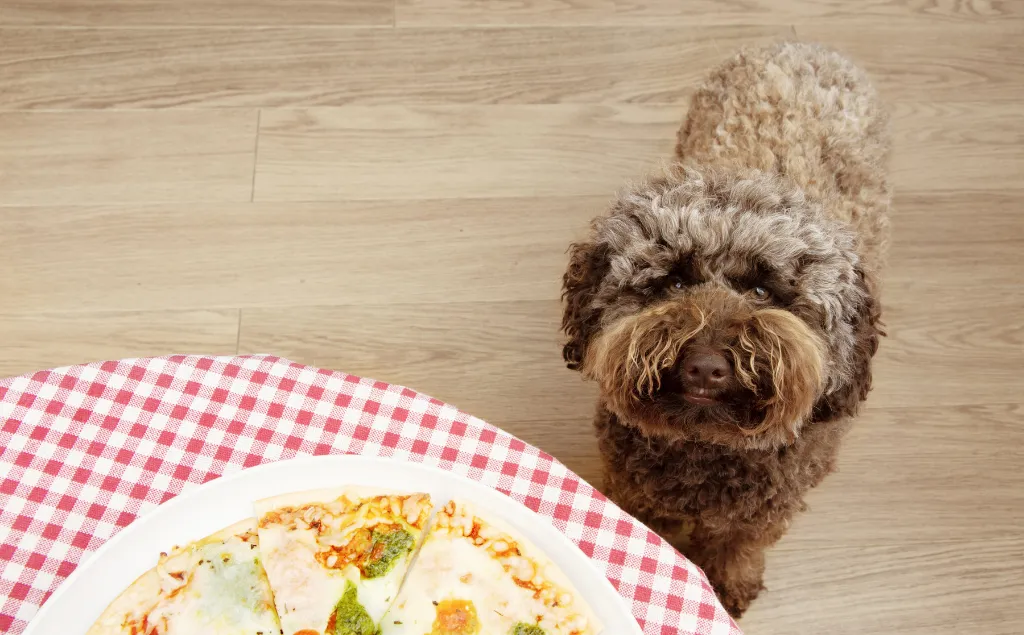We’ve all experienced that pleading look from our furry friends as they eye our dinner plate. When it comes to human foods dogs can eat, knowing what’s safe can prevent health issues and let you share treats responsibly. This guide highlights 10 nutritious options your dog can enjoy, plus key foods to avoid, backed by veterinary experts like the American Kennel Club (AKC) and ASPCA.
Not every table scrap is harmless—some can cause digestive upset, toxicity, or worse. We’ll cover safe picks with benefits, preparation tips, and warnings. For a complete rundown on dangers, see what are all the foods dogs cant eat.
Foods Your Dog Can Safely Eat
These human foods dogs can eat offer vitamins, fiber, and protein when given in moderation—typically as 10% or less of daily calories. Always introduce new foods slowly and consult your vet, especially for puppies, seniors, or dogs with health conditions.
1. Carrots
Crunchy carrots are a top choice among human foods dogs can eat. Low-calorie and rich in beta-carotene (which converts to vitamin A), they support eye health and vision. Their texture helps scrape plaque from teeth, promoting dental hygiene. Chop into bite-sized pieces to prevent choking; raw or steamed works best. A medium carrot provides fiber for digestion without excess calories.
2. Blueberries
These antioxidant-packed berries are superfoods dogs love. Blueberries combat free radicals, boost immunity, and may lower risks of cognitive decline in older dogs, per AKC research. A handful (about 10 for small breeds) makes a fresh treat. Freeze them for a cooling snack on hot days—just wash thoroughly first.
 Human Foods Dogs Can Eat
Human Foods Dogs Can Eat
3. Salmon
Plain, cooked salmon delivers omega-3 fatty acids for lustrous coats, healthy skin, and joint support—ideal for active or arthritic dogs. Avoid raw fish due to parasites and skip seasonings like salt or garlic. Bake or boil a small portion (1-2 ounces per 10 pounds of body weight) weekly.
4. Unsalted Peanut Butter
Dogs go wild for this protein-rich spread with healthy fats for energy. Use only xylitol-free, natural varieties; xylitol is deadly, causing rapid blood sugar drops and liver failure. Smear a teaspoon inside a Kong toy for mental stimulation. From personal experience as a longtime dog owner, it’s perfect for hiding pills.
5. Eggs
Cooked eggs provide complete protein and amino acids for muscle maintenance. Scramble or boil without additives; raw eggs risk salmonella and biotin deficiency from avidin. One egg serves small dogs, two for larger ones, a few times weekly.
6. Seedless Watermelon
Hydrating and vitamin-rich (A, B6, C), seedless watermelon flesh refreshes without calories. Remove rind and seeds—they’re choking hazards or cause blockages. Cube into fun shapes; it’s a summer favorite that aids hydration.
7. Shrimp
Peeled, cooked shrimp offers lean protein and antioxidants. Limit to occasional treats due to high cholesterol; devein and skip shells. A few pieces boost immunity without overwhelming the diet.
8. Apples
Vitamin-packed apples freshen breath and provide fiber. Core and seeds contain cyanide—remove them entirely. Slice thinly to avoid esophageal lodgment, as vets have noted in cases.
9. Green Beans
Low-cal green beans deliver vitamins K and C, plus manganese for bone health. Steam or raw, plain—no butter or onions. They’re filling for weight management.
10. Sweet Potatoes and Canned Pumpkin
Both fiber heroes aid digestion and regularity. Bake sweet potatoes (skin off) or use plain canned pumpkin (not pie filling). They soothe upset stomachs and support gut health.
Monitor for allergies like itching or vomiting with any new food.
Foods Your Dog Should Never Eat
While focusing on safe human foods dogs can eat, steer clear of toxins. Common culprits include chocolate (theobromine poisoning), grapes/raisins (kidney failure), onions/garlic (anemia), and xylitol. For meats, learn what meat can dogs not eat, what meat should all dogs avoid, and what meat is toxic for dogs. If your dog ingests something risky like what to do if dog eats grass seed, contact a vet or poison hotline immediately.
Final Thoughts
Sharing safe human foods dogs can eat strengthens your bond and adds variety to their diet. Stick to portions, preparation guidelines, and watch for reactions—every dog is unique. Prioritize balanced commercial food, and always run changes by your veterinarian for personalized advice.
Explore more tips on our site, like what are all the foods dogs cant eat, to keep your pup thriving!
References
- American Kennel Club. “People Foods Dogs Can and Can’t Eat.” akc.org/expert-advice/nutrition/human-foods-dogs-can-and-cant-eat/
- ASPCA. “People Foods to Avoid Feeding Your Pets.” aspca.org/pet-care/aspca-poison-control/people-foods-avoid-feeding-your-pets
